BobaBoard's 2023 Retrospective: Shifting Gears
It's time for the third BobaBoard end-of-year retrospective! This year, we learned some important lessons and made some hard decisions. If you're just joining us now, check out this recap of how we got here.
Click here to catch up with the when and how of BobaBoard.
When the Tumblr porn ban is announced, Ms. Boba swears vengeance on centralized online social spaces, and starts jamming her head full of the knowledge needed to "effectively fuck shit up". From entrepreneurship to marketing, from customer conversations to random knowledge about obscure online communities, just imagine her standing below a waterfall studying everything she could put her hands on.
Hit with the realization that no change is possible from the inside of a big, soulless corporation, Ms. Boba rage quits her Silicon Valley software engineering job to invest her savings into building BobaBoard: her own small-scale, extremely niche social network/forum (with hot yaois and a focus on privacy)!
After being convinced that people find real value in her silly social network ideas, Ms. Boba announces Realms: an expansion to the original BobaBoard vision to allow anyone to build their own small corner of the web. With a ragtag team of fandom volunteers now assembled, the journey to the future officially starts.
Realms launch! Enigmalea, a BobaBoard volunteer, co-launches the Fandom Coders Discord server with Ms Boba, bringing together experienced coding professionals and enthusiastic amateurs united by both their fandom participation and their interest in code. This community becomes a crucible for new cross-fandom connections and new fandom coding projects.
This year, the BobaBoard team had several experiences that led us to rethink our approach to building the audience necessary to sustain a fandom-owned, fandom-created social media platform. In this section, we'll guide you through each major problem we faced and the solution we devised. Strap on to your seats, we're going on a ride!
Early last year, the existing team of BobaBoard volunteers got together to do a web development sprint. It was our most productive collaboration to date, which was an encouraging sign that BobaBoard could be developed using our planned model of volunteer labor.
What became apparent, however, was that this model was dependent on having volunteers who knew enough about web and open source development to participate in development sprints. Experienced fandom coders do exist, but finding, recruiting, onboarding, and above all retaining them is a perpetual struggle (as we cover in more detail in the bus factor section). When one or two of our more experienced people were unavailable, development would grind to a halt and no sprints could get started. We certainly couldn’t depend on highly-committed experts with buckets of free time falling out of the sky; realistically, what we needed was a larger, rotating pool of enthusiastic amateurs who didn’t require too much one-on-one hand-holding to jump into things.
But where would we find a this pool? BobaBoard’s more experienced volunteers were struggling to get new volunteers up to speed so they could assist with BobaBoard’s development. The fandom public at large didn’t seem to have the specific skills BobaBoard needed in the quantities required.
What to do?
As February rolled in, Ms Boba needed to decide what to do for her traditional April Fools’ Day project. With her desire for a larger pool of web dev enthusiasts in mind, she asked herself what if this year’s project is a book to teach web dev?
The logic went like this: maybe if we kickstart a how-to book, we can CREATE a fandom public that has the skills we need. At the same time, we can also make the skills needed for modern web development more accessible to minorities and historically marginalized folks who haven’t had the same education and encouragement around web development as more dominant demographics.
We already knew that funding BobaBoard through user-purchased subscriptions would be very very difficult, but a book (or rather, a book series) would open up an alternative revenue stream that could support BobaBoard’s community into the future. And the initial kickstarter would be a chance to expand BobaBoard’s audience and test the waters to see how many new people would be willing to give us money for this initiative—not just fandom people, but also tech-industry folks who had money and cared about diversity and accessibility.
The plan was ambitious, but BobaBoard’s volunteers agreed it was good. The catch was that it meant throwing a good portion of the year into making the kickstarter a success. From February to May, a core team of volunteers lived and breathed the Fujoshi Guide to Web Development, and Ms Boba personally spent three months working 16-hour days.
I didn't realize how much active promo it would take to get to even just ten thousand dollars! But with a lot of work, we got to 10k—and we even hit our stretch goal of 18k!

When we hit our Kickstarter goals, we were naturally obligated to follow through on the creation of the FujoGuide! It was an exciting new direction, but very different from what we had originally envisioned for BobaBoard this year.
The decision to put direct BobaBoard promotion and development on the backburner and pursue the promotion and development of the FujoGuide was made because, after extensive discussion amongst the BobaBoard volunteers, we understood that the BobaBoard project could not succeed without a bold move to bring in a new audience, new collaborators, and new potential revenue streams.
Ms Boba realized that because all of this Kickstarter money had been introduced into the equation, it was important to get her legal shit on lock. BobaBoard had been running as Ms Boba’s personal project, more or less, but was that really viable long-term, legally speaking? Ms Boba’s other projects were loosely affiliated with BobaBoard, but what would that mean if BobaBoard became some kind of official entity?
Ms Boba had to ask herself tricky questions like, say, what are the options for nonprofits vs. limited-liability corporations? As it turns out, there are a large number of administrative burdens placed on nonprofits that are not placed on corporations (thanks, capitalism!). A non-profit organization can’t do something like revenue-sharing: any profits made from a product produced and sold by a non-profit are more directly tied into that organization’s charter and cannot be divvied up among the workers who made that product possible. And if Ms Boba was going to work with several longtime BobaBoard collaborators to create and then sell a book or three, it didn’t seem right to cut anyone out of the potential rewards.
But there are other options besides strict non-profits, such as worker co-ops and benefit corporations; in many ways, these other structures function more like you might expect an ideal non-profit to function. We had to consider this wide range of options as we thought about the future of BobaBoard and the future of this guide we were creating with help from our community. This took a lot of self-education, because lawyers are exorbitantly expensive to even look at. Huge shoutout to our lord and savior the Sustainable Economies Law Center—we couldn’t have done it without you!

Somehow I don't think Phoenix Wright could've helped us with this.
If you’d like to hear more in-depth musings on the different paths available to officially existing as an organization in the eyes of the U.S. government, check out Ms Boba’s post on her own blog.
Ms Boba’s hard work on this issue is going to pay off soon, but that would be SPOILERS. Check back here after April 1st for the upcoming reveal!
Earlier, we covered the issues with BobaBoard’s volunteer pool lacking enough experienced developers to handle two of them being unavailable at the same time. In tech organizations, this kind of dependency is sometimes called the “bus factor,” meaning “the number of people on a project who could bring the entire thing to a halt if they were ever hit by a bus.”
and if the cherry magic kurodachi bus crashes into us pic.twitter.com/fjjmlXWOqj
— Kaylah ㋐ ⭐️ (@kazukiscrocs) March 27, 2024
Over the course of 2023, it became increasingly obvious that BobaBoard’s “bus factor” was way too high. We needed more volunteers: more coders, more writers, more leaders. But how to get them?
Volunteer recruitment, volunteer onboarding, and volunteer management/moderation are all complex jobs in and of themselves. If no one is available to do volunteer management or moderation, then it’s irresponsible to recruit or onboard anyone new, but if no one in the current volunteer pool can do volunteer management or moderation, then someone new has to be recruited to the team to do it—and since you can’t typically recruit someone off the street to suddenly take charge of your volunteer pool, you have to find some way to grow your volunteer pool so that eventually someone can be promoted from within.
Without a pre-existing dedicated volunteer wrangler, all volunteer management fell by default to Ms Boba. But the pesky thing about hard work paying off with success is that it tends to bring you even more hard work. After the successful FujoGuide kickstarter, Ms Boba and the small team of BobaBoard collaborators who had helped bring about that success were now on the hook for delivering on the kickstarter’s promises. Pulled away from BobaBoard development to assist with FujoGuide delivery and legal research, they hoped to empower other BobaBoard volunteers to pick up active BobaBoard development where they had left off.
But empowering volunteers isn’t as simple as telling them to take initiative. Even when the existing volunteers did their best to chip away at development tasks for Bobaboard, they would still frequently run into blockers that could only be cleared by Ms Boba or one of the other volunteers now eyeball-deep in FujoGuide and self-help law books. With one key volunteer after another laid low by personal issues, BobaBoard development ground almost to a halt.
And at the same time, Ms Boba could not go out of her way to recruit (much less manage!) any new crops of volunteers.
The “bus factor” was stark: the organization as it existed in 2023 did not have the volunteer numbers to keep development rolling consistently, nor did it have the internal momentum to grow without Ms Boba personally taking point. It was clear that BobaBoard had to find a way to ensure its development would be more robust in the face of specific volunteers, and Ms Boba in particular, being unavailable.
Given that we are a bunch of queer, disabled, neurodivergent, and otherwise marginalized folks, our lives are fragile and our availability is frequently inconsistent for reasons beyond our control. The organization going forward needs to be set up with an eye toward redundancy.
Through searching for a more sustainable de-centralized framework, we organically fell into using self-governing “bubbles” to collaborate. When Ms Boba read about the broader concept of “circles” in the book Many Voices One Song: Shared Power With Sociocracy, it felt like a positive sign that we could pursue a more modern, less hierarchical organization structure.
This was a critical decision, because despite Ms Boba’s name being Ms Boba, if BobaBoard is going to succeed, Ms Boba will have to stop being its central figure. The fandom community that wants a fandom-owned, fandom-built social media platform will need to step forward and contribute their time and effort to help it along.
With our plan decided, Ms Boba is moving forward with BobaBoard as a volunteer on equal footing with everyone else, rather than as the project’s “owner.” She is relinquishing control of the volunteer intake bottleneck, and our onboarding process will be made simpler and less bespoke. Read about what the handoff will entail in her own words.
This wouldn't be much of a retrospective if we didn't scrutinize last year's end-of-year dreams with this year's realities. Let's get to it!
As mentioned in last year’s retrospective, we launched and then un-launched a new Realm created for the Fandom Coders community. This realm was slated to be brought back online once some key volunteers had gotten past some encroaching real-world stressors. Even after those stressors were in the rearview mirror, though, we still didn’t re-launch the Fandom Coders realm.
In May 2023, we had our preliminary conversation with the Fandom Coders community about creating a Community Values document to ensure everyone knew going in what kind of culture the Fandom Coders realm would have. This approach was in keeping with last year’s stated goal of building the culture of BobaBoard slowly and intentionally, rather than cramming in as many users as technologically possible into an unstructured soup of humanity. While many members of the BobaBoard volunteer team are part of Fandom Coders, Fandom Coders is quite a bit larger, and it was important to us that the existing Fandom Coders community reach a group consensus of what kind of culture they wanted to build in their realm, rather than having values imposed on them top-down by BobaBoard project leaders.
The initial conversation enjoyed enthusiastic participation from many corners of the Fandom Coders community. However, it was difficult to sustain this level of engagement when it came time to formalize the discussion into a cohesive document.

Drafting a foundational document that will bind your community together in shared values: inspiring in musical numbers, deathly boring in real life.
Ms Boba and a few of the more engaged community members spearheaded the efforts to refine a document that would represent the existing community culture, but the drafting process revealed the difficulty of giving the broader community a true sense of ownership of the culture in which they participated.
Culture is a nebulous thing and trying to script it ahead of time is a challenge. In order for a community to be comfortable with a formalized writeup of “community values”, it’s important that the community itself be heavily involved at every step of the process so nothing feels like an imposition or unpleasant surprise. No matter how much any one individual may want to help shape a community’s culture, it simply wouldn’t work for them to shoulder that responsibility on their own.
We set aside the question of a Community Values document as the Bobaboard team took some time to better understand the structure we wanted for our own organization. With this retrospective done, and with the announcement you’ll see in the next few days, we’re ready to revisit this conversation again very soon.
Thank you all for your patience, and if you’re a member of Fandom Coders (or think you’d like to be), we encourage you to get involved in this conversation when it does take place!
Our plan at the end of 2022 was to create a Communications team to parallel our existing Coding team. The new team took shape in accordance with the legal research Ms Boba had done on structuring different types of organizations.
During the runup to the FujoGuide kickstarter, Ms Boba hired someone from the fandom community to assist with the kickstarter’s social media calendar. Some community members also stepped up to help with alt text and with correcting Ms Boba’s non-native grammar. This became the foundation of the eventual Communications team.
At first, the main job of the Comms team was to have people to brainstorm with, which was already a huge step forward. Now, in the first months of 2023, we’ve progressed to finally having someone other than Ms Boba writing newsletter updates for BobaBoard and other FujoVerse projects! This encouraging experience shows that Ms Boba becoming a volunteer like everyone else is a healthy and sustainable change.
We had great success this year with the launch of the FujoGuide kickstarter, which, as mentioned above, hit its stretch goals and raised $18,000. The existence of the guide as a saleable product will serve as a future revenue stream to support BobaBoard’s continued existence. We’re proud of taking this step toward future financial stability!

It’s n-not like I WANTED a bookmark or anything! Baka!!!
However, the $18k raised for the initial volume of FujoGuide (which will cover Git and Github) is, of course, going to the production of FujoGuide, and not to Ms Boba’s rent. While there was a small bump in recurring donations, Ms Boba would need ten times her current number of Patreon subscribers in order to pay her rent—and ONLY her rent.
Given the reality of this situation, Ms Boba has a deadline for herself: if she can’t figure out a way to get those subscribers by August, she will need to go back to doing contract work at the very least, and possibly take a full-time position if things remain exactly as they are finance-wise.
This is another reason for the ongoing effort to restructure the BobaBoard project without Ms Boba at the center. No matter what happens, Ms Boba will continue to champion the project and shepherd it toward lasting success, but she might not be able to dedicate herself to it full-time, due to the financial pressures of surviving in this late capitalist hellscape.
On a brighter note, during this past year we did manage to submit our first grant application! Anybody who’s done grant writing will understand how much of an accomplishment that was!
We said last year that we wanted to invest in more tech education aimed at fans, and boy did we invest! It was incredibly heartening to see how much interest there was in the Fujoshi Guide to Web Development across all different slices of the Internet. We’re full of excitement to see how far this new educational tool can go.
In addition to the longer-term goal served by educational materials like FujoGuide, Ms Boba also took a stab at more immediate education by streaming twice a week to showcase her dev work in real time. She provided projects of different levels of complexity, allowing fans of different skill sets to choose their comfort level and learn along with her as she worked. These streams will continue into the future as part of her commitment to providing technological onboarding to more people in fandom.
Naturally, the Fujoshi Guide to Web Development was part of our long-term goal to get more fans to be able to work together, especially on open-source projects like BobaBoard!
At the same time, the Fandom Coders community continues chugging along and attracting more fans interested in learning to code. The collaboration between fans just starting out and more experienced coders is amazing to watch! If you’re not already part of the Fandom Coders community yourself, don’t hesitate to apply.
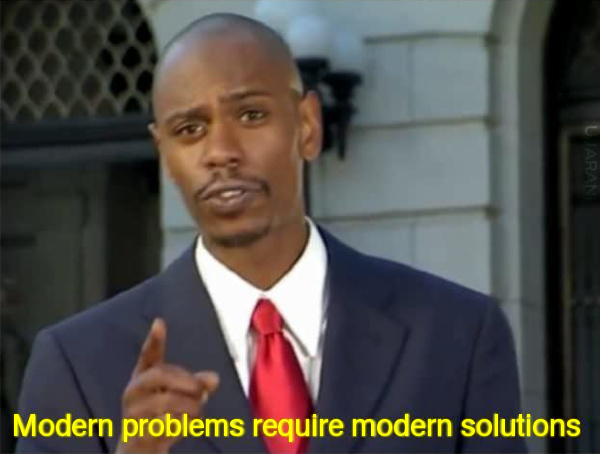
(Chappelle has succumbed to transphobic dipshittery, so this meme has been seized by the queer proletariat.)
We’ve been experimenting with and subsequently promoting the adoption of the Astro framework for website development. It’s proved to be approachable enough for newbie developers to get their feet wet, and engaging enough to encourage growth for developers edging toward intermediate levels.
Ms Boba has been researching the explosion of decentralized technologies that have gained new attention in the wake of Twitter’s Musk-fueled implosion. She attended a hackathon hosted by bluesky and learned about @proto, a tool bluesky is developing for the next era of social media on the web.
And it’s possible Ms Boba is even working on a new modern tool of her own…but you’ll have to keep following her to find out more!
While we had lots of fun side quests and self-discovery journeys to go on this past year, we DID also get some cool BobaBoard development done.
What's NixOS?
Explaining NixOS to the fullest requires a lot of technical jargon, so let’s try
to keep it easy: while most operating systems require you to run a series of
commands to set up all the programs you need to run in your server, NixOS is an
operating system you can set up and update based on a series of configuration
files. Given a NixOS configuration, anyone can start a new server with the exact
programs and settings they need, down to which version of them is installed.
This makes it easier to be confident that the programs will behave as expected,
or to debug issues if they arise.
This year, the BobaBoard team developed their own NixOS configuration.
What did we do that for?
Our configuration is calibrated to make self-hosting much much easier for anyone
interested in hosting a BobaBoard Galaxy. We’ve been running our own instance
using NixOS for a few months already, and while there’s still a lot to do to
make it seamless, the foundation has been laid for other people to do the same
on their own server.
In case you didn't know, a BobaBoard Galaxy is a collection of independent Realms hosted on the same server. In practice, you can think of a Galaxy as the "top level domain" of a web address (e.g. bobaboard.com), and a Realm as a specific community under that domain (e.g. hannigram.bobaboard.com, fandom-coders.bobaboard.com).
Galaxy owners will each control the onboarding of Realms within their BobaBoard instance, and the common set of policies each of them must abide by.

What the heck does that mean?
It means collaboration will be easier in the future! We’ll be able to update our
codebase more frequently and prevent “code rot.”
No, really, what does that actually mean? What’s “typesafing”?
When making changes to code, there’s a lot that can go wrong. One crucial type
(badum-tsh) of issue happens when the shape of the data some code expects to
receive in theory doesn’t match what the code receives in practice. For
example, this could happen because data gets renamed, some functionality is
moved around or deleted, or even just because of human error. As the amount of
code in a project and the number of people working on it grow, it becomes harder
and harder to make sure that errors like this aren’t introduced by accident.
Type-safing allows us to spot these errors during the coding phase, making it a lot less likely that they’d be introduced by accident. It also helps people understand exactly what the data they work with looks like when they go write code, making it easier for them to get started—and make it easier for people who aren’t Ms Boba to review contributions!
One important step we took in 2023 was to go heads down on our onboarding experience. Among other things, we standardized the commands in our development environments (so that it would be easier to onboard new volunteers), in addition to other quality-of-life improvements like improving our “getting started” documentation. We also discussed and started implementing new onboarding and team practices (like “PR pinch hitters” and “work bubbles”) that we believe will help the project succeed in the long term!
As has been touched on repeatedly in this retrospective, our goal for the future of BobaBoard is to ease Ms Boba out of the command chair and continue transforming BobaBoard into a truly volunteer-led organization.
We’ve already made some moves in this direction so far in 2024 by formalizing the “community” team to parallel our coding and communications teams. Plus we’ve just launched a new steering committee to handle rethinking our volunteer recruitment, onboarding, and retention processes. Revisiting how we handle volunteers will be crucial to our future success, so it will likely be a big focus this year.
You can read about this change in her own words on Ms Boba's blog.
We made great progress toward self-hosting in 2023 with the NixOS configuration discussed above. In 2024, we’re aiming to finish the entire self-hosting setup so that we can test it out and get it ready for others to use!
After lots of unfun legal research, we’ve decided that Bobaboard should exist as an independent entity, not married in any way to the Fujoshi Guide to Web Development or other commercial Fujoverse projects. This means we need an official structure through which to accept funding. Becoming your own nonprofit is a lot harder than you’d think if you want to do it right, so to save a bit of time and effort we’re looking for a “fiscal host”: a parent non-profit that will let us officially “borrow” their non-profit status. Way less paperwork!
If we can figure out a good parent organization, we can use non-profit status to raise money for Bobaboard without going through Ms Boba the individual. Plus, it’ll be a lot easier to apply for grants!
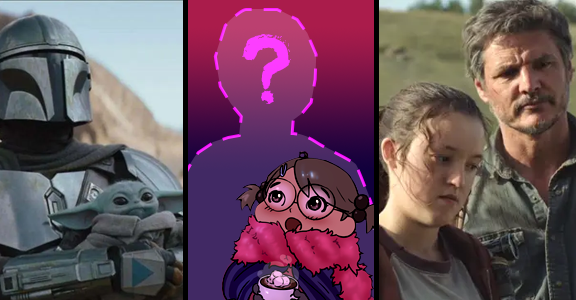
Perhaps our parent organization will ALSO be Pedro Pascal!
Although this retrospective talks a lot about stepping back or stepping sideways, rest assured that BobaBoard will continue! We want it to stay healthy and supported indefinitely into the future, and all the upcoming organizational change reflects that.
If you too want to see BobaBoard thrive, here’s how to help:
For the moment, financial support for BobaBoard is still happening indirectly through financial support of Ms Boba and her other projects. The more support Ms Boba has and the better all the FujoVerse side projects are doing, the more she can contribute to the lasting stability of BobaBoard!
-
Support Ms Boba in her continued quest to help fandom help itself
- Subscribe on Patreon
- Donate on Ko-fi
- Buy BobaBoard merch (profit is shared with the artists too!)
- Buy a Very Official Absolutely One-of-a-Kind Certificate of Ship Ownership
- Buy your very own FujoBoard
-
Support the FujoVerse
- shhhhhhhhhhhhh. spoilers!
- Sign up to purchase your own copy of the Fujoshi Guide to Web Development as soon as it ships!
Aside from software engineers and other flavors of computer monkey, we could use assistance from folks with professional expertise in the following areas:
- Employment law (for commercial projects within the Fujoverse)
- Grant writing
- Communications
- Volunteer Management
Even if all you have time for is a consultation or two, we’d still love to hear from you!
No money? No applicable skills? We still need your help!
We’re not quite ready to make use of one-off volunteers, but we DO currently want to onboard anybody who can answer to the following description:
- Ready to be part of a team
- Ready to keep coming back to do a little bit month after month
- Ready to take note of issues nobody else has noticed yet
- Ready to poke around to find the next step toward a solution
- Ready to help figure out (and help write down) optimal procedure
Consistently checking in and doing a little bit of work on a regular basis is (at this stage) infinitely more valuable than jumping in, taking on a massive amount of responsibility, and burning out after a few weeks. But it’s easy to get fired up and bite off more than you can chew—everybody at Bobaboard knows the struggle! We are in the process of implementing an onboarding system that builds in pacing, preventing newbies from doing too much at once and making sure they feel anchored in the volunteer community and know their way around before they take on any complex tasks.
If you’re interested in joining us, drop your email here.
It's impressive you read this far, and we love you for it 🤩
See you next year for another retrospective.